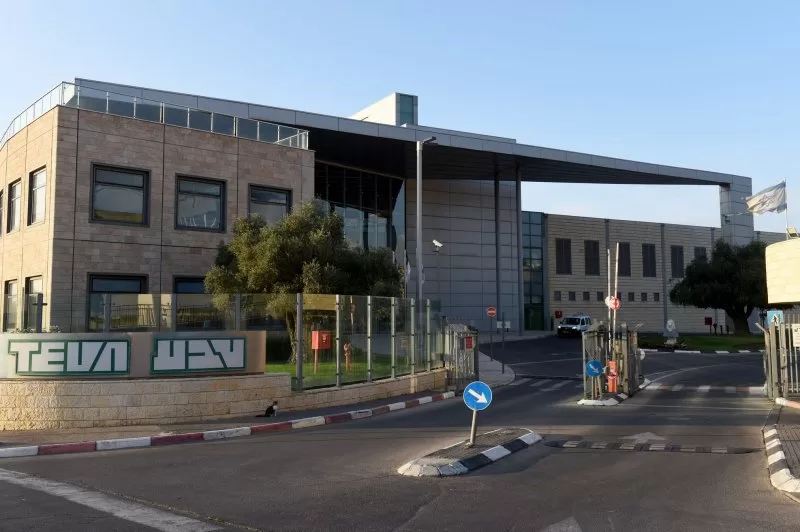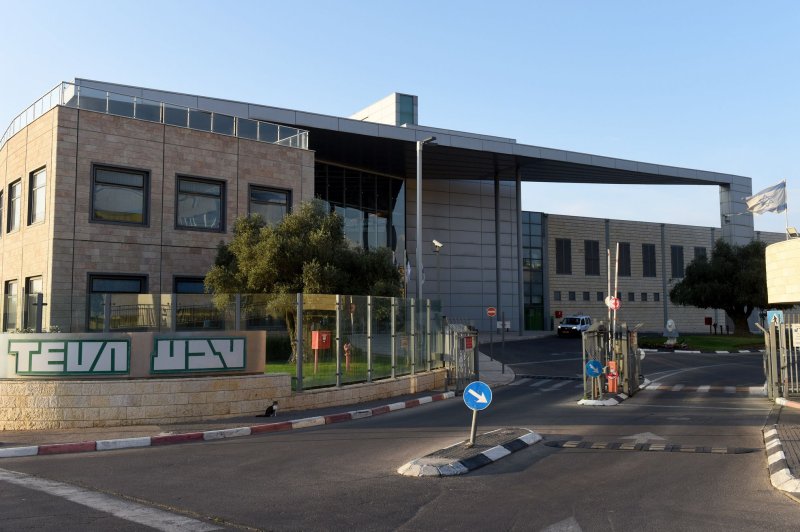The Teva Pharmaceutical logo is seen in English and Hebrew at its tablet production plant in Jerusalem in 2019. The company agreed Thursday to pay $450 million to settle charges stemming from two kickback schemes. File Photo by Debbie Hill/UPI |
License PhotoOct. 10 (UPI) — Teva Pharmaceuticals, the largest generic drug manufacturer in the United States, has agreed to pay $450 million to resolve two claims that allege the company violated the Anti-Kickback Statute, the Justice Department announced Thursday.
“Kickbacks designed to induce referrals or purchases of healthcare goods or services distort physician and patient decision-making, thwart competition and bypass controls put in place to protect federal health care programs,” Principal Deputy Assistant Attorney General Brian Boynton, head of the Justice Department’s Civil Division, said in a statement.
“The Justice Department is committed to pursuing those who engage in kickback violations, including drug manufacturers, to ensure that federal health care programs continue to serve the interests of taxpayers and program beneficiaries.”
UPI has contacted Teva for comment.
One of the cases alleges Teva violated the kickback law by conspiring to pay Medicare patients’ copays for the multiple sclerosis drug Copaxone from 2006 through 2017, while simultaneously raising Copaxone’s price.
The U.S. accused Teva of conspiring with multiple third parties, including a specialty pharmacy and two independent copay assistance foundations, to ensure that donations to the foundations were used to cover the copays of Medicare Copaxone copays.
The Justice Department said that Teva this conduct “was prohibited by the AKS, and that Teva thereby caused the submission of false claims to Medicare.”
In the second case, Teva allegedly conspired with three other generic drug manufacturers to fix prices for pravastatin, medicine used to treat high cholesterol and triglycerides, as well as clotrimazole and tobramycin, two other generic drugs. Under terms of the deal, Teva paid a criminal penalty of $225 million, admitted to the conspiracy and price-fixing charges and that the scheme amounted to receiving illegal kickbacks.
“For far too long, Teva gamed the charitable foundation process by paying kickbacks through two foundations, and with the aid of a specialty pharmacy. Those kickbacks undermined the purpose of the Medicare co-pay system and violated the Anti-Kickback Statute,” said Acting U.S. Attorney Joshua Levy for the District of Massachusetts.
The Medicare program’s copay structure is designed to act as a safeguard against the artificial inflation of drug prices. The integrity of that system is jeopardized when drug companies manipulate prices through conspiracy, collusion or kickback schemes disguised as charitable contributions, the Justice Department added.
Nearly two years ago, Teva agreed to pay $523 million to settle claims over its involvement in the opioid crisis in New York. The agreement was the largest amount secured from an individual opioid defendant as the state targeted opioid manufacturers and distributors.
Last month, Teva settled with the city of Baltimore for $80 million for its role in contributing to that city’s opioid crisis.

